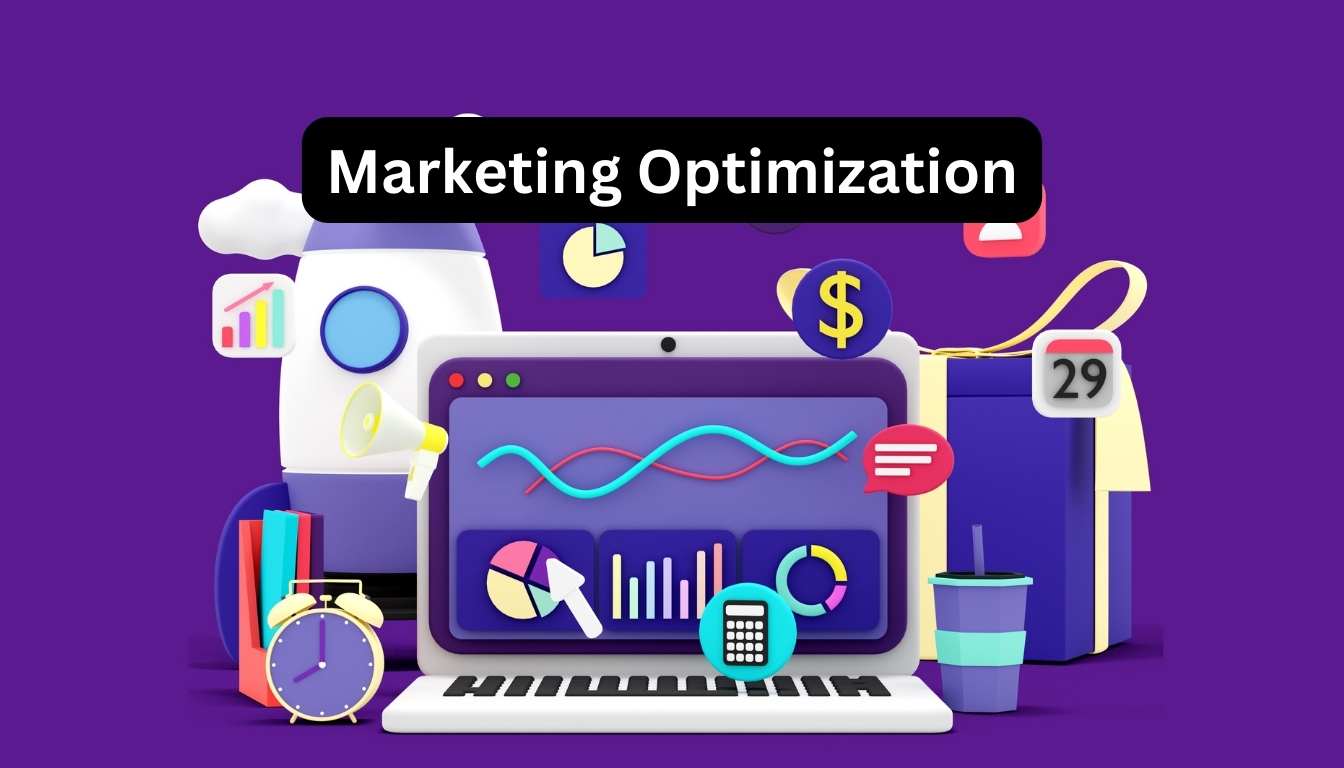Welcome to our article on intangibility in marketing! Understanding intangible services is key in today’s digital world. These include challenges and opportunities for marketers, like shaping brand perception and consumer behavior. It also influences effective marketing strategies and customer experiences, driving business growth.
Today, we’ll dive into intangibility and its effects on marketing. We’ll look at the unique traits of intangible services and how they change consumer views. Also, we’ll discuss the role of experience marketing in sports. We’ll show how selling experiences and memories strengthens customer bonds.
For those in service or digital marketing, or just keen on learning about intangibility’s impact, this article is for you. It offers insights and tactics to improve your marketing efforts. You’ll learn how intangibility influences customer experiences and value propositions.
Key Takeaways:
- Intangibility refers to the unique challenges and opportunities associated with marketing intangible services, which are prevalent in today’s marketplace.
- Consumer perception plays a crucial role in evaluating and valuing intangible services.
- Intangible services have unique characteristics, including inseparability, variability, and perishability, that impact service production and consumer experience.
- Experience marketing in the sports industry involves creating memorable and personalized experiences to foster emotional connections with fans.
- Memories and nostalgia are powerful tools for creating emotional connections and enhancing fan loyalty in sports marketing.
Understanding Intangible Services
Intangible services are services that do not lead to owning something you can touch. They might be linked to a physical item, but not always. Since you cannot see, taste, feel, hear, or smell these services before buying, it makes choosing harder.
To help consumers understand their services, marketers highlight tangible aspects. This includes the work environment, staff, and how they communicate. Things like a professional office or friendly staff help make the service feel more real.
The way consumers view a service is key to its success. What they think about the service’s quality, their trust in the provider, and how happy they are with it, matters a lot. Their views are shaped by their own experiences, others’ advice, and the provider’s reputation.
Enhancing Consumer Perception
- Delivering excellent customer service: Providing exceptional customer service can positively impact consumer perception and lead to increased satisfaction and loyalty.
- Establishing strong brand identity: Developing a strong brand identity through consistent messaging, visuals, and service delivery can build trust and enhance consumer perception.
- Communicating value proposition: Clearly articulating the unique value and benefits of the intangible service can help consumers understand its worth and make informed decisions.
- Utilizing testimonials and reviews: Highlighting positive testimonials and reviews from satisfied customers can reinforce the credibility and reliability of the service.
Creating a positive view of intangible services is essential. Service providers must understand and improve how consumers see their services. This helps them stand out in a crowded market.
| Factors Influencing Consumer Perception | Impact on Consumer Behavior |
|---|---|
| Quality of service | Affects overall satisfaction and likelihood of repeat purchase or recommendation. |
| Trust in the service provider | Influences willingness to engage with the service and make long-term commitments. |
| Reputation of the service provider | Shapes initial expectations and willingness to try the service. |
| Word-of-mouth recommendations | Can either positively or negatively influence perception and decision-making. |
| Personal experiences | Play a significant role in shaping perception and future behavior. |
Unique Characteristics of Intangible Services
Intangible services have special features unlike physical products. These aspects affect service delivery and how customers experience them.
Inseparability
Inseparability is a chief trait of intangible services. Services are usually made and enjoyed at the same time. This means the provider and the customer are part of the service process. For instance, in a restaurant, the chef cooks as the customer dines.
Variability
Variability marks another key aspect of intangible services. The human element in service delivery can cause differences in performance. The abilities, knowledge, and mood of the service staff influence this. A hotel’s service quality may change based on which staff are working.
Perishability
Services also have a unique quality called perishability. They can’t be stored like physical goods. This is tricky for service providers as they try to manage demand changes. A hotel, for example, can’t “store” unsold room nights for later use. They have to work to fill their rooms as they go.
Impact on Service Production
These features greatly affect how services are made. Providers have to handle making and giving the service at once, delivering a smooth experience. They must keep service quality consistent despite its natural variability. Also, they have to manage demand well to use their capability fully and stay profitable.
Impact on Consumer Experience
Customers feel the impact of these special service traits too. Inseparability allows for direct interactions with providers, making personalized experiences and boosting satisfaction. However, variability might change how customers see service quality, depending on the given performance. Perishability also influences customer decisions, as they must think about service availability and timing.
Intangible services’ unique traits demand smart strategies to keep service quality steady, handle variability, and meet consumer needs well. Providers must find ways to tackle these challenges to give outstanding experiences that meet or go beyond customer expectations.
Importance of Experience Marketing in Sports
Experience marketing is pivotal in sports. It helps attract and keep fans by offering memorable experiences. This way, sports organizations can stand out and earn loyalty, repeat visits, and good chatter.
Selling a game ticket isn’t enough anymore. Fans seek an all-around experience that stirs emotions beyond the game. By offering personalized experiences, sports teams can connect deeply with fans.
Emotions drive fans. So, creating experiences that touch their hearts is essential. Offering exclusive access or behind-the-scenes tours makes fans feel special and connected.
Experience marketing makes organizations unique. In a crowded market, offering more than just the game itself can set a team apart. It adds value beyond the scoreboard.
Technology plays a big role in sports marketing now. From buying tickets on an app to virtual reality and social media, tech makes experiences richer. It helps fans feel like part of the action.
| Benefits of Experience Marketing in Sports | Examples |
|---|---|
| Increased fan loyalty | Exclusive access to players and events |
| Repeat business | Interactive fan experiences |
| Positive word-of-mouth | Incorporating technology for enhanced engagement |
| Differentiation from competitors | Creating unique and memorable experiences |
Experience marketing helps sports teams build a dedicated fan base. These fans not only attend games and buy merchandise, but they also support the team during tough times.
Experience marketing unlocks the sports industry’s potential. It builds emotional connections, offers personalized experiences, and uses tech to stand out and create loyal fans.
Selling Experiences in the Sports Industry
In the sports world, it’s not just about the game anymore. Teams and events are now focusing on creating unique memories for fans. They aim to tap into the emotions of fans. This helps build loyalty and sets them apart from others.
Creating an emotional bond with fans is key. Teams and events offer special access to players and interactive activities. They use technology to make fans feel closer to the action. This bond not only makes the experience better but also strengthens fan loyalty.
Standing out is vital in a crowded market. Sports groups offer unique experiences that fans can’t get anywhere else. This strategy makes fans feel special and builds a strong connection. It also encourages fans to keep coming back.
Technology is changing how we enjoy sports. Mobile apps, virtual reality, and interactive features add excitement. They also make things like buying tickets easier. This enhances the fan’s experience in many ways.
Selling unique experiences helps sports teams earn more. This includes ticket sales, merchandise, and sponsorships. The strong connection with fans drives this success. By creating memorable moments, teams can attract and keep fans. This also leads to fans spreading good words about them.
The blend of emotional connection, making a mark, staying loyal through technology defines selling experiences. Going beyond just the game, teams and events craft memorable moments for fans. This creates a strong sense of community among fans.
| Benefits of Selling Experiences in the Sports Industry | Key Elements |
|---|---|
| Enhanced fan experience | Emotional connection |
| Increased fan loyalty | Differentiation |
| Diversified revenue streams | Technology integration |
Marketing Memories and Nostalgia in Sports
Memories and nostalgia are very powerful in sports marketing. Sports groups know that personal and emotional experiences are key. They use these experiences to connect deeply with fans. This leads to more loyalty and good feelings toward them.
One method to trigger memories is through personalized merchandise. Items like signed photos make fans feel close to their favorite teams. These special items become treasured keepsakes because they’re exclusive.
Letting fans meet their heroes is another way to build emotional bonds. Events where fans can get autographs or even chat online with players create unforgettable memories. Fans then feel like they’re part of the team’s extended family.
Exclusive events also play a big role. Behind-the-scenes tours or VIP experiences make fans feel part of a special group. These moments are not just fun; they make fans feel more connected to the team or event.
Sports organizations can create a strong emotional connection by focusing on memories and nostalgia. This bond is vital for keeping fans loyal and viewing the brand positively. In a world full of competition, tapping into fans’ emotions makes an organization stand out. It guarantees ongoing support from their followers.
Importance of Standing Out in Sports Marketing
In sports marketing, it’s critical to stand out. Teams and events need to offer unique experiences and unforgettable moments to fans. They aim to differ from competitors and make a lasting impression on their supporters.
To really shine, consider hosting special events. Not just any game, but ones filled with pre-game fun, halftime shows, or post-game festivities. This keeps fans excited and engaged from start to finish.
Boosting the game-day vibe is vital. Adding lively music, bright lights, and interactive displays can greatly enhance the fan experience. It brings a rush of excitement and energy to the venue.
Exclusive perks are key to standing apart. Giving fans access to players, behind-the-scenes tours, or VIP seats makes them feel special. It fosters a sense of being part of something exclusive.
Embracing technology is crucial for differentiation. Offering apps for ticket buying or virtual reality experiences can upgrade the fan experience. It opens doors for new ways to interact and stay engaged.
The ultimate goal is to connect emotionally with fans. By prioritizing the fan experience and creating memorable moments, sports organizations can attract and retain fans. It sets them apart in a crowded market.
| Ways to Stand Out in Sports Marketing | Benefits |
|---|---|
| Hosting special events | – Creates a memorable experience – Keeps fans engaged |
| Creating a vibrant atmosphere | – Enhances the fan experience – Generates excitement and energy |
| Offering exclusive benefits | – Makes fans feel valued – Creates a sense of exclusivity |
| Technology integration | – Enhances fan experience – Provides unique opportunities for interaction |
Selling Experiences at Sports Events
Sports organizations know that making unique experiences at events is key. They aim to create more than just a product. They want to make lasting memories through special benefits and immersive settings.
This push for unique experiences isn’t just about the game. It’s about making every moment exciting and memorable. Offering behind-the-scenes looks and interaction with players can deepen fans’ love for the sport.
Fans with great experiences often become loyal supporters. A fun time means they’ll likely come back for more. This loyalty means more people attending events and spreading the word.
Happy experiences lead to more spending by fans on tickets and merchandise. They see it as supporting something they cherish. This spending benefits the sports organization now and in the future.
In conclusion, selling experiences helps sports groups connect with fans on an emotional level. Unique and engaging events build loyalty, increase revenue, and help them stand out in a competitive market.
The Role of Memories in Sports Marketing
Memories are key in sports marketing. They create unique experiences for fans, forging an emotional connection. This leads to lasting memories. These memories build fan loyalty. They also impact how fans see and engage with teams or events.
Sports organizations tap into emotions with memories. They create deep connections with fans. Personalized experiences that match fans’ passions make a strong emotional bond. Meeting favorite players or attending special events leaves lasting impressions.
Technology is a powerful tool for creating memories. Virtual and augmented reality, along with mobile apps, provide immersive experiences. Fans can feel part of the action from home or live events.
Memorable experiences lead to positive word-of-mouth. Fans are likely to share good stories. They recommend teams or events to others. This helps attract new fans.
Memories also build fan loyalty. Fans with strong emotional connections become advocates. They wear team colors and display merchandise. Loyal fans stick with their team no matter what.
In conclusion, memories are crucial in sports marketing. They create emotional connections and loyalty. This leads to a lasting impact. Memories bind fans to their favorite teams, creating strong relationships.
Conclusion
In the sports world, being intangible holds great value. Marketing that highlights memorable experiences is crucial. It helps sports events stand out by forging emotional bonds with fans.
Sports teams focus on experiences that fans will never forget. This strategy separates them from the rest. It builds loyalty among fans and boosts sales. The impact of such marketing is powerful. It affects how fans see a brand and their actions towards it.
Sports groups aim to create unforgettable memories for their supporters. They offer special perks and interactive moments at events. This strengthens the bond between fans and teams. Loyalty grows, leading to more visits and talks about the events. The result? Higher profits.
Memories are key in sports marketing. They help craft unique, personal moments for fans. This builds a strong emotional tie. Those memories influence fans’ relationships with a team or event over time. With memorable experiences, teams secure a lasting place in fans’ hearts.
For sports teams, intangible marketing and creating experiences are vital. They help stand out and gain loyal followers. By focusing on memories and emotional ties, teams offer something beyond just a game. This way, they keep fans’ support for a long time.







